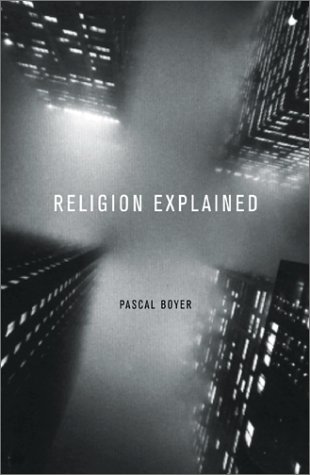 It is easy enough for us atheists to mock religion (and much of it is indeed “mockable”) but we cannot ignore the fact that some very intelligent and well-educated people hold these beliefs. So is it really gullibility that is responsible for people believing that they go to a heavenly paradise or agonizing hell when they die, that some other-worldly power made the universe for his own and our benefit, and even that he made it in six days only a few thousand years ago, and so forth?
It is easy enough for us atheists to mock religion (and much of it is indeed “mockable”) but we cannot ignore the fact that some very intelligent and well-educated people hold these beliefs. So is it really gullibility that is responsible for people believing that they go to a heavenly paradise or agonizing hell when they die, that some other-worldly power made the universe for his own and our benefit, and even that he made it in six days only a few thousand years ago, and so forth?
I can’t forget how humiliated I felt after finally realising that much of what I had for long believed was nothing but a make-believe fantasy. Yet at the time preceding my conversion I was studying in one of the more reputable universities, and subsequently I studied at a post graduate level the processes of indoctrination and propaganda without my personal faith suffering the slightest dent. Crazy!
But are we crazy?
In my efforts to understand the scholarly research into extremist religious and political movements and behaviour, I have inevitably been led to try to grasp the nature of religion itself more clearly in the light of recent studies. I still have much to learn but in the meantime I think the following is worth sharing. It is from Pascal Boyer’s Religion Explained: The Evolutionary Origins of Religious Thought (2001).
Boyer observes that religious beliefs are restricted to a certain range of beliefs. People don’t just believe any impossible thing and make it part of their religion. That fact should alert us to something, he says. It may not be gullibility that is the responsible party. Maybe it is something about those specific types of beliefs that strike a plausible chord in many people. If so, we need to study what it is that distinguishes those beliefs from other types of nonsensical concepts and also, of course, the way the brain works in relation to beliefs generally.
Boyer sums up the main points of his argument on this specific question in three points:
• The sleep of reason is no explanation for religion as it is. There are many possible unsupported claims and only a few religious themes.
• Belief is not just passive acceptance of what others say. People relax their standards because some thoughts become plausible, not the other way around.
• A different angle: We should understand what makes human minds so selective in what supernatural claims they find plausible. (p. 31)
He begins the question of gullibility by summing up his earlier discussion of other suggested reasons often posited for the origins of religion (my formatting) — pages 31-34: Continue reading “Is Religion for the Gullible?”
